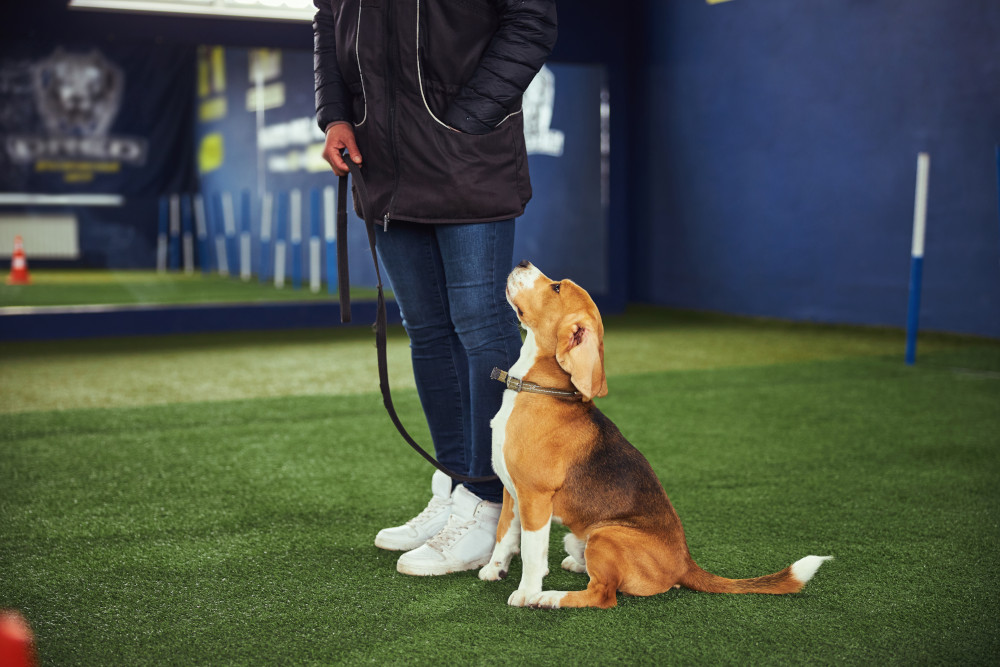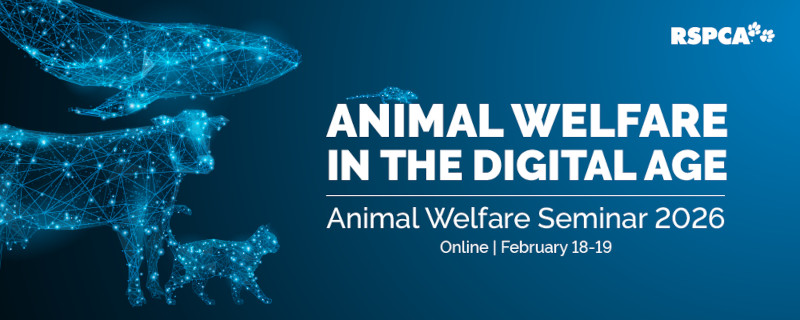
Training is an important part of a dog’s life for many reasons. It provides mental stimulation, supports cognitive wellbeing, teaches appropriate behaviour for living successfully in our homes and communities, and helps to ensure safety for both dogs and people. Training also helps to build trust and clear communication between caregiver and dog.
Training that RSPCA recommends
The RSPCA supports positive reinforcement training. This involves setting the dog up for success and consistently rewarding desired behaviour with something the dog values, such as high value treats, praise, or play with a favourite toy. Positive reinforcement training is enjoyable for the dog, enhances the relationship between the dog and handler and does not compromise animal welfare [1].
Dog behaviour is driven by consequences. This means that dogs repeat behaviours that work for them. Behaviours that result in something positive for the dog are repeated (even behaviours you don’t like).
When desired dog behaviour (such as ‘sit’) is rewarded consistently, the dog will offer the rewarded behaviour more frequently. In behaviour science, this is known as the Matching Law [2]. This process also helps reduce the likelihood of a dog offering undesired behaviour (such as jumping up). If your dog continues to show undesired behaviour, try to understand why. Does your dog get something beneficial as a result of the behaviour? For example, some dogs jump up on people because they get attention or a pat. Other dogs learn that barking at the back door results in being let outside.
It’s important to understand that the rewards (reinforcers) you use in training can vary in value. For example, dry food or kibble tends to be lower value for most dogs while dog roll pieces and cooked chicken is often high value. Dogs will typically be more motivated, and training is more effective when the value of the reward outweighs the value of the unwanted behaviour. You can experiment to find out what your dog considers high value. Then use the high value rewards for more challenging behaviours (e.g. recall under distraction) and the lower value rewards to reinforce known behaviours (e.g. ‘sit’ or ‘drop’).
Ignoring unwanted behaviours is effective if attention was inadvertently rewarding the unwanted behaviour. If dogs are not rewarded (i.e. receive no attention or treats) for a certain behaviour, then they tend to stop doing it. For example, if a dog is jumping up to greet people they should be ignored. They should only receive attention (including eye contact) when they have four paws on the ground or are sitting. The more often the dog is rewarded for sitting or standing (not jumping) with attention and treats, the less likely they will be to jump up.
Sometimes, if owners react to ‘unwanted’ behaviour by yelling or getting angry they may inadvertently reinforce the dog’s behaviour. Some dogs perceive this as attention and the ‘unwanted’ behaviour is simply reinforced. For example, if an owner shouts at a dog who is barking excessively, the dog may interpret this as getting attention and thus the barking continues whereas it is more effective to try to ignore this behaviour and instead, consistently reward the dog when they are quiet (not barking).
Aversion therapy or physical punishment must not be used in training programs. Punishing a dog for ‘unwanted’ behaviour can exacerbate the problem and compromises animal welfare [1].
Benefits of positive reinforcement dog training
There are many benefits to training your dog with positive reinforcement. Training provides mental and physical exercise which allows your dog the opportunity to think, problem solve, and to engage in species or breed specific behaviour (e.g. retrieving, herding etc). Foundational training such as basic obedience helps set your dog up to succeed but ongoing training is important to further build their skills, cognitive wellbeing, and strengthen the human-dog relationship. There are many ways you can engage in training with your dog, from scent training, to obedience, to agility and more.
All dogs are individuals, and this means they vary in terms of the activities they enjoy and what they value in life. For example, some dogs love to play with tug toys while others prefer to retrieve. Play may be a high value reward for some dogs whereas others may prefer treats. For these reasons it’s important to choose a training activity your dog really enjoys.
Puppy school and training classes
Reputable and high-quality puppy school classes are highly recommended, which are an important way of socialising your puppy with other dogs and unfamiliar people. Puppies have a ‘critical socialisation period’ from about 3 to 12-14 weeks of age [3]. This is the time when they need to be socialised to different people, environments and other dogs in a positive way to help prevent fear of these things as they grow older. These experiences also help puppies learn social cues and how to communicate well with other dogs.
For dogs who are no longer in the puppy stage, training classes are offered in most areas. The RSPCA recommends classes that use reward-based training that revolves around positive reinforcement as the basis of training. Avoid any training that involves punishment or aversive training techniques or equipment (e.g., devices which deliver electric shocks, pronged or pinch collars, choke chain/correction collars). Aversive training equipment and methods (which use painful/unpleasant stimuli, dominance, coercion, force, or punishment to train and control animals) are inhumane, can increase risk of injury to both animals and people, can have short and long-term negative impacts on the physical and mental health of the animal and their relationship with people, may result in learning difficulties, and risk the development of ongoing problem behaviours. See RSPCA policy 7.7 Equipment and methods to train and control companion animals for more information.
Reward-based training should be a part of every dog and dog-caregiver’s life. It helps to enrich your dog’s life, contributes to their wellbeing, builds and reinforces trust and a positive caregiver-dog relationship, and helps to ensure safety for both dogs and people.
References
[1] de Castro, A. C. V., Fuchs, D., Morello, G. M., Pastur, S., de Sousa, L., & Olsson, I. A. S. (2020). Does training method matter? Evidence for the negative impact of aversive-based methods on companion dog welfare. Plos one, 15(12), e0225023.
[2] Houston, A. I., Trimmer, P. C., & McNamara, J. M. (2021). Matching behaviours and rewards. Trends in Cognitive Sciences, 25(5): 403-415.
[3] Stolzlechner, L., Bonorand, A., & Riemer, S. (2022). Optimising puppy socialisation–short-and long-term effects of a training programme during the early socialisation period. Animals, 12(22): 3067.

